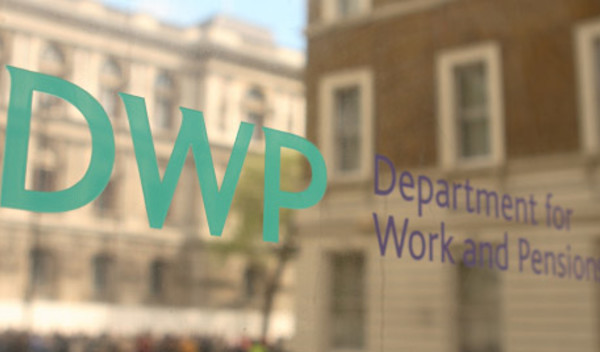

The Public Accounts Committee is calling for the government's pension payment system to be overhauled and underpayments to be treated more seriously as part of a critical report.
The report 'Underpayments of the State Pension', published this morning (January 21), highlighted a number of areas where the government needs to make changes to ensure maladministration and underpayment issues do not continue.
The DWP estimates it has underpaid 134,000 pensioners, mostly women, more than £1bn of their state pension entitlement, with some of the errors dating as far back as 1985.
Pensioners affected are those who first claimed the state pension before April 2016 and who do not have a full National Insurance record or who should have inherited additional entitlement from their deceased partner.
Overall, the committee found the DWP had been relying on a system that was not fit for purpose and failed to mitigate against this, which was a failure in the government’s responsibilities.
It also branded the department’s complacency on the underpayment issue a failure and warned there was still a risk that similar, unidentified errors exist elsewhere in the state pension system.
Meg Hillier, chairwoman of the Public Accounts Committee, said: “DWP is now on its ninth go at fixing these mistakes since 2018, the specialised staff diverted to fix this mess costing tens of millions more to the taxpayer and predictable consequences in delays to new pension claims.
"And there is no assurance that the errors that led to these underpayments in the first place will not be repeated in the correction exercise.
“This is a shameful shambles. The PAC expects DWP to set out the step changes it will make to ensure it is among their last.”
In its report it looked at the outdated systems, cost to the taxpayer, clarity of communications and the potential for further errors.
Here is what it found:
Outdated systems
The system which controls the payment of the state pension is outdated and heavily manual, therefore opens itself up to human error, the PAC said.
This is not dissimilar to what the National Audit Office found in its report into the state pension issues back in September 2021.
The PAC found despite the complexity of state pension entitlements and the increased risk posed by manual processes, the DWP’s checks failed to identify the systematic underpayment of thousands of pensioners.
It stated: “The department repeatedly missed opportunities to upgrade and instead added new functionality by introducing additional systems on top of the first, some of which are also increasingly out-of-date, increasing the complexity of its administration.”
Therefore it has suggested, as a matter of urgency, that DWP should find a cost-effective way to upgrade its IT systems and better its administration processes so that repeated errors do not occur.
Cost to the taxpayer
Correcting these issues comes at a cost to the taxpayer as it requires specialist staff and training.
It is expected to cost £23.4m, with more than 500 staff recruited, by the time the issue is resolved in late 2023.
There is also a risk that, as more pensioners are paid under the new state pension system, the department’s focus will shift away from the more complex old state pension system, potentially leading to more errors.
The PAC said DWP needs to balance moving experienced staff to work on its correction exercise and make sure it keeps expert staff on the old state pension rules so long as they are needed to administer the benefit over the following decades.
Clarity of communications
The DWP was also criticised for not given people who were worried they had been underpaid enough information to find out what they should do, meaning many more people could be missing out.
It said the DWP’s communications strategy was to only contact those who it finds have been underpaid under the state pension regulations.
Other groups of pensioners can receive arrears if they make a claim for additional entitlements to the department, but it has provided very little information on which pensioners should do so.
The DWP said it cannot publish guidance for those who may have been underpaid because it believes it cannot accurately cover all possible underpayment scenarios.
But PAC believes DWP should include information for groups it finds hard to reach such as the next of kin of deceased savers.
The DWP was also accused of having not been “sufficiently transparent” to Parliament about the underpayments.
The PAC stated: “Until recently, the department has been reluctant to provide details of the volume or value of state pension underpayments or the backlog in processing new state pension applications to the general public or Parliament.”
It has now suggested the DWP should provide regular updates on its progress of rectifying this issue.
Further errors
Given the nature of the underpayments identified there is a risk that similar, unidentified errors exist elsewhere in the state pension caseload, PAC said.
For example, the NAO report had stated that the department did not find any significant evidence that it had failed to properly process divorce-related cases. But Steve Webb, former pensions minister and partner at LCP, who has helped people discover their underpayments, told PAC he believes the scope of the correction exercise was too narrow.
Webb believes the exercise should be extended to include divorced women as he has identified several cases of underpayments to date where similar manual processing errors have occurred.
Therefore, the PAC said DWP should write to the committee to explain how it has assessed the risk of systemic underpayments to divorced women and explain how it will review other detected underpayments to assess whether there is a systemic cause and take steps to extend the correction exercise.
Webb said: “The committee are right to be highly critical of DWP over this whole debacle. It is shocking that DWP’s regular checks regarded the level of error on state pensions as too small to be worth investigating when in reality many thousands of people have missed out on potentially life-changing amounts of money.
“DWP’s defensive reaction to questions and scrutiny over this issue suggest that lessons have still not been learned. There are still far too many people missing out on the state pension to which they are entitled and DWP needs to track them all down as a matter of urgency.”
A DWP spokesperson said: “Resolving the historical state pension underpayments that have been made by successive governments is a priority for the department and we are committed to doing so as quickly as possible.
“We have set up a dedicated team and devoted significant resources to processing outstanding cases, and have introduced new quality control processes and improved training to help ensure this does not happen again. Those affected will be contacted by us to ensure they receive all that they are owed.
“We are carefully considering the content of the Public Accounts Committee’s report and will respond formally in due course.”
amy.austin@ft.com
What do you think about the issues raised by this story? Email us on FTAletters@ft.com to let us know



